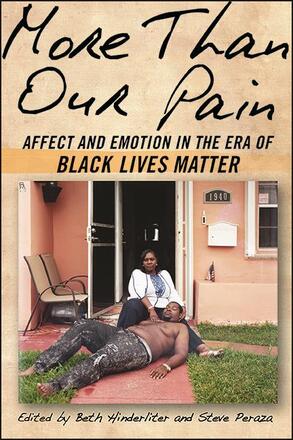
More Than Our Pain
Affect and Emotion in the Era of Black Lives Matter
Alternative formats available from:
Covering rage and grief, as well as joy and fatigue, examines how Black Lives Matter activists, and the artists inspired by them, have mobilized for social justice.
Description
Confronted by a crisis in black American leadership, state-sanctioned violence against black communities, and colorblind laws that trap black Americans in a racial caste system, Black Lives Matter activists and the artists inspired by them have devised new forms of political and cultural resistance. More Than Our Pain explores how affect and emotion can drive collective political and cultural action in the face of a new nadir in race relations in the United States. This foregrounding of affect and emotion marks a clear break from civil rights–era activists, who were often trained to counter false narratives about protesters as thugs and criminals by presenting themselves as impeccably groomed and disciplined young black Americans. In contrast, the Black Lives Matter movement in the early twenty-first century makes no qualms about rejecting the politics of respectability. Affect and emotion has moved from the margin to the center of this new human rights movement, and by examining righteous rage, black joy, as well as grief and fatigue among other emotions, the contributors celebrate the vitality of black life while documenting those who have harmed it. They also criticize the ways in which journalism has commercialized and sold black affect during coverage of the Black Lives Matter movement and point to strategies and modes-of-being needed to overcome the fatigue surrounding conversations of race and racism in the United States.
Beth Hinderliter is Assistant Professor of Art History and Director of the Duke Hall Gallery of Fine Art at James Madison University. Her books include Antagonizing White Feminism: Intersectionality's Critique of Women's Studies and the Academy (coedited with Noelle Chaddock). Steve Peraza is Assistant Professor of History and Social Studies Education at Buffalo State College, State University of New York.
Reviews
"More Than Our Pain is a thought-provoking compilation, highly recommended especially for college library social issues collections." — Midwest Book Review